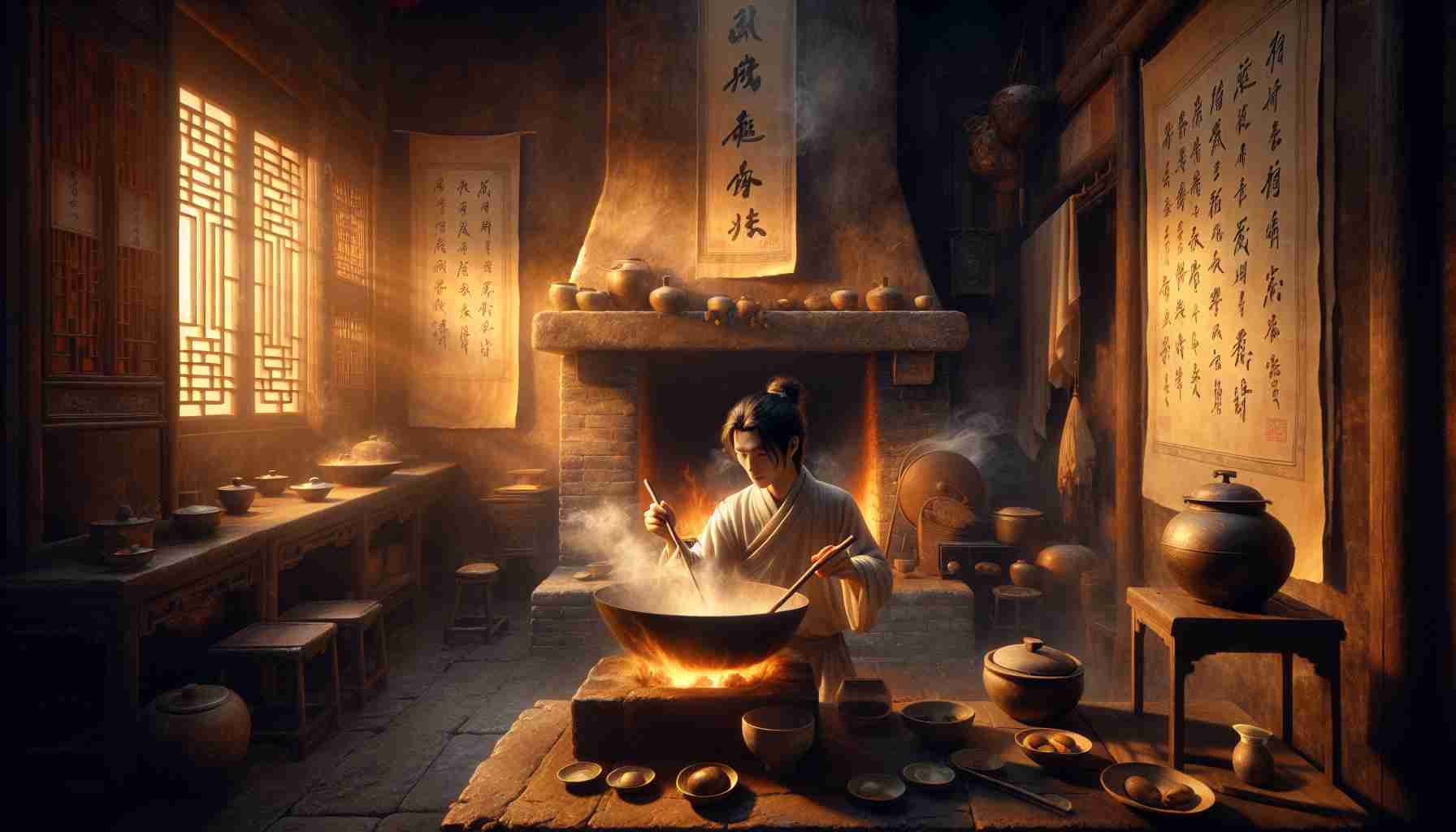

The stew was boiling too fast again. I leaned over the pot, stirring carefully, but my mind was racing. I had tried this recipe a hundred times, and it still didn’t taste like my father's.
I’m Ming. I grew up in a small village, where my father was known as “The Gentle Cook.” He never rushed. He never burned anything. And people said his food brought peace to anyone who ate it. I wanted to cook just like him.
When my father passed, he left behind his old wok—but not the recipe for his famous peace stew. I searched every scroll, tested every spice, and spent hours chopping vegetables—but none of it worked.
One evening, I stormed into the garden, holding a wooden spoon like a sword. “Why won’t it work?” I shouted to the stars. “I follow every step!” My grandmother was sitting on the porch. She watched me with kind eyes.
“You stir too hard,” she said. “You try too hard. That’s not the Way.”
I frowned. “But I have to get it right.”
“Do you remember how your father cooked?” she asked.
I thought back. He wasn’t always measuring or fussing. He smiled, he hummed to the fire, he listened to the bubbling pot like it was whispering to him. Sometimes he added herbs without opening his eyes. Sometimes he just waited and let the flavors speak.
“He followed the Tao,” my grandmother said, gently pointing to the stream beside the garden. The water moved softly, never forcing its way, just flowing around rocks, finding its path, and still getting where it needed to go.
“The Tao is the Way of nature. It doesn’t try to control,” she said. “Your father didn’t force the stew to taste peaceful. He was peaceful—and the stew followed.”
Those words sat with me. The next morning, I tried again. But this time, I didn’t rush. I placed each vegetable into the pot with care, not because I needed control, but because I wanted to listen.
When it boiled too fast, I didn’t panic. I smiled. I turned the heat down softly, like a whisper. I didn’t stir harder—I stirred with ease, moving like the stream.
And then…it smelled like his stew.
I served it to my grandmother, and after one bite, she closed her eyes and smiled. “There it is,” she said.
I didn’t cry out in joy. I just sat beside her and watched the steam rise like morning mist.
That day, I learned that cooking, like life, is not about control. It’s about balance, peace, and letting things be. The Tao taught me that the more I pushed, the further I got from the truth. But when I relaxed and flowed with the moment, the truth came gently to me.
Now, when I cook, I don’t always follow a recipe. I listen. I breathe. I let the stew lead.
And every bowl I serve carries a little more peace—one spoonful at a time.
The stew was boiling too fast again. I leaned over the pot, stirring carefully, but my mind was racing. I had tried this recipe a hundred times, and it still didn’t taste like my father's.
I’m Ming. I grew up in a small village, where my father was known as “The Gentle Cook.” He never rushed. He never burned anything. And people said his food brought peace to anyone who ate it. I wanted to cook just like him.
When my father passed, he left behind his old wok—but not the recipe for his famous peace stew. I searched every scroll, tested every spice, and spent hours chopping vegetables—but none of it worked.
One evening, I stormed into the garden, holding a wooden spoon like a sword. “Why won’t it work?” I shouted to the stars. “I follow every step!” My grandmother was sitting on the porch. She watched me with kind eyes.
“You stir too hard,” she said. “You try too hard. That’s not the Way.”
I frowned. “But I have to get it right.”
“Do you remember how your father cooked?” she asked.
I thought back. He wasn’t always measuring or fussing. He smiled, he hummed to the fire, he listened to the bubbling pot like it was whispering to him. Sometimes he added herbs without opening his eyes. Sometimes he just waited and let the flavors speak.
“He followed the Tao,” my grandmother said, gently pointing to the stream beside the garden. The water moved softly, never forcing its way, just flowing around rocks, finding its path, and still getting where it needed to go.
“The Tao is the Way of nature. It doesn’t try to control,” she said. “Your father didn’t force the stew to taste peaceful. He was peaceful—and the stew followed.”
Those words sat with me. The next morning, I tried again. But this time, I didn’t rush. I placed each vegetable into the pot with care, not because I needed control, but because I wanted to listen.
When it boiled too fast, I didn’t panic. I smiled. I turned the heat down softly, like a whisper. I didn’t stir harder—I stirred with ease, moving like the stream.
And then…it smelled like his stew.
I served it to my grandmother, and after one bite, she closed her eyes and smiled. “There it is,” she said.
I didn’t cry out in joy. I just sat beside her and watched the steam rise like morning mist.
That day, I learned that cooking, like life, is not about control. It’s about balance, peace, and letting things be. The Tao taught me that the more I pushed, the further I got from the truth. But when I relaxed and flowed with the moment, the truth came gently to me.
Now, when I cook, I don’t always follow a recipe. I listen. I breathe. I let the stew lead.
And every bowl I serve carries a little more peace—one spoonful at a time.